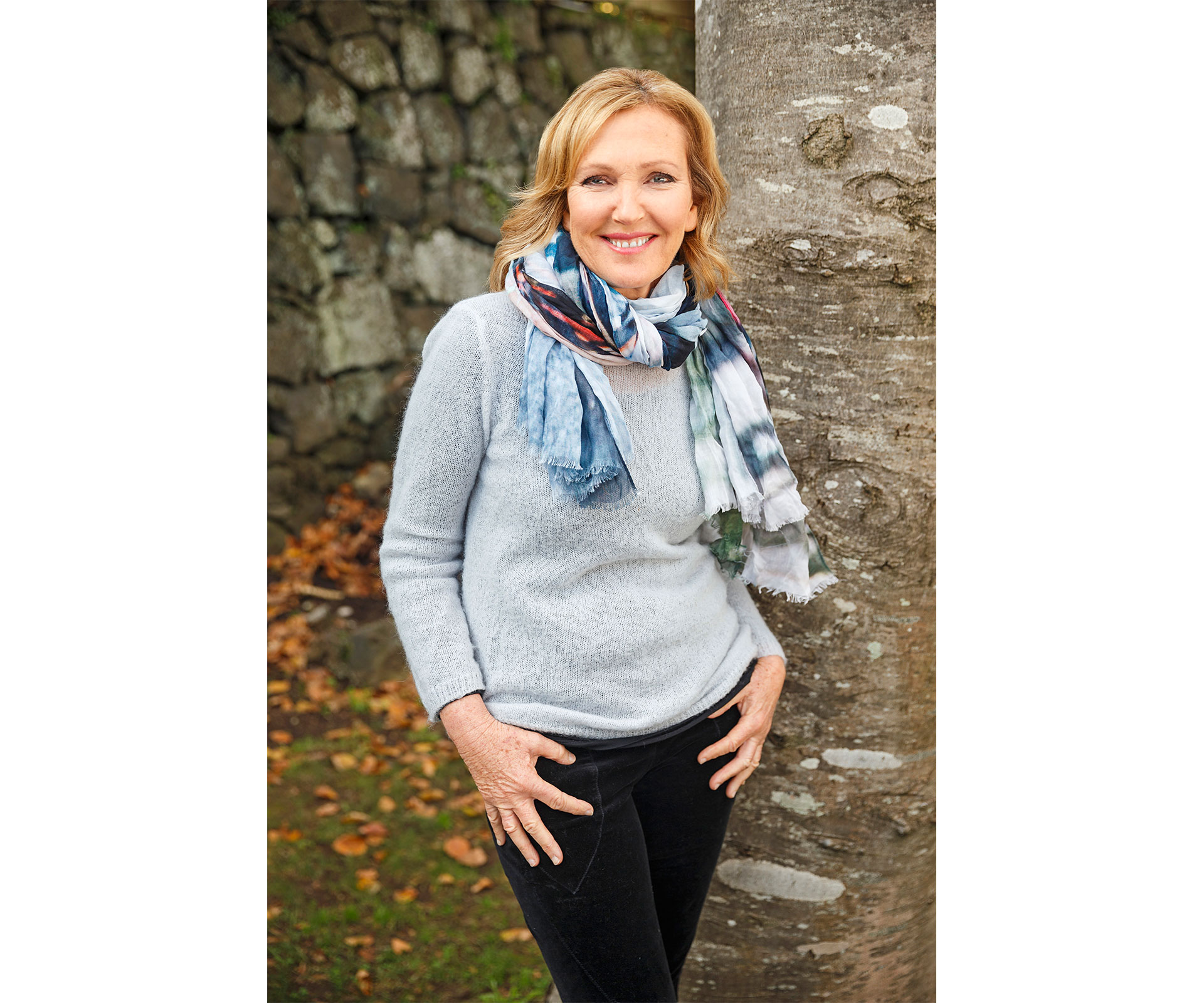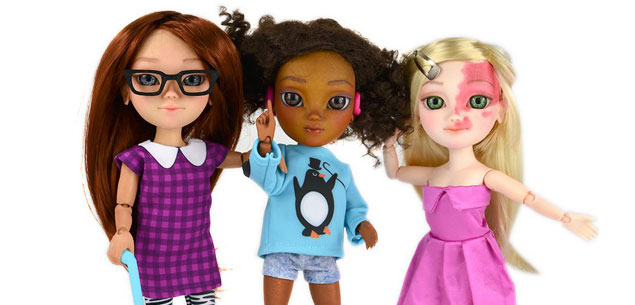“This series of articles is about women who inspire me. Some of them I have known for some time, others I have admired from a distance over the years. All of them share the same characteristics. They are warm, kind, courageous, fun-loving people. They are generous of spirit and they are supportive of other women.” -Judy Bailey
Imagine this: the little boy you adore has arrived for his first day at school, his tiny hand tucked trustingly in yours, a school bag that’s almost bigger than him slung around his shoulders.
There’s a big, bright expectant smile on his face. He’s five years old and full of anticipation, ready to begin the first big adventure of his life.
And then, the principal comes out of his office, looks past the child and says he’s not welcome: “We won’t be taking him after all; we don’t want another problem,” he tells you with a hint of embarrassment. This despite the fact the school had already enrolled him.
This is what happened to Robyn Scott-Vincent and her son Harrison. It was a defining moment in her life.
Harrison had been born with Sotos Syndrome, a disorder that affects gross and fine motor skills. “Why don’t they want me Mummy?” Harrison asked, looking at her with eyes full of confusion.
I’m sitting with Robyn in the sunny kitchen of her central Auckland villa, which she shares with her partner John. The 54-year-old is hugging the family schnoodle, Indie, to her chest. She’s a strong woman, but at this moment, as she remembers that hurtful time more than 20 years ago, so very vulnerable.
“I’m a journalist – you’d expect me to at least question the principal and stand up for my son, but I was paralysed. We just stood there,” she recalls, the hurt and anger still so plain to see.
Needless to say, Harrison never set foot in that school again, but was accepted into another nearby, where his learning disability was understood. And Robyn became fiercely determined to change attitudes towards people with disabilities, insisting that others see the person, not the disability, and recognise the value everyone contributes to society.

“Home, heart and family are at the centre of everything I do.”
I first met Robyn when she was reporting on the Auckland regional news programme Top Half back in the 1980s. Like many of this country’s top journalists, she scored her first job in Taranaki, on the Taranaki Herald alongside industry stalwarts like Ian Sinclair and Derryn Hinch.
She had made her way to television via the Auckland Star, where she became the first full-time female sports journalist, The New Zealand Herald and the New Zealand Woman’s Weekly. At the Star she worked alongside legendary television critic Barry Shaw, a man who had a huge influence on her life, inspiring in her a love of television.
And perhaps most importantly, he taught her to “always be constructive, not destructive.” That’s something Robyn always has at the back of her mind. She was a great reporter, warm, sensitive and possessing a sharp intellect. People opened up to her; they trusted her.
During this time Robyn married and produced three sons. Harrison in 1988, Blake the following year and Ryan, five years later.
“I was surprised at the number of close friends and family members who didn’t get Harrison because he was a bit slow, rather than just enjoying him for who he was,” Robyn recalls, gazing out at the garden thoughtfully.
Her marriage broke up and she soldiered on raising her boys as a single mum. By now she had set up her own production company, RSVP. She specialised in documentaries that shed light on the lives of marginalised people. Among them, Mothers Behind Bars, about women in prison and the controversial move to allow them to have their babies with them, and The House on Grey Street, about men with mental health issues sharing a home.
However, in 2004, six months after her separation, Harrison became sick. He had cancer – acute myeloid leukaemia. His illness coincided with Robyn finally securing funding through New Zealand on Air to produce 40 half-hour programmes showcasing people living with disabilities.
The show was to be called Attitude, a name now shared by her production company.
Harrison died on January 17, 2005. The first episode of Attitude screened just two months later in March. Robyn had no choice but to throw herself into her work. She had committed to the show, and had two remaining sons, then aged 15 and 10, to support.
“I think Harrison’s death forever shaped them,” Robyn tells me. “They say kids cope. I say, ‘No they don’t.’ I have to have my radar out for that. They put a mask on, but actually it does matter.
“Having Harrison was magic. He was our colour orange. He questioned things others wouldn’t and made us look at life in a different way. He taught me so much.”

Robyn with Harrison, shortly before he died.
From the beginning, Attitude was fronted by people with disabilities. It drew heavily from the Wheel Blacks wheelchair rugby team’s talent pool, with player Curtis Palmer and coach Grant Sharman being first to star in the show.
It was like one big family. Curt, a quadriplegic, was like Blake and Ryan’s big brother. He would go to Robyn’s every Friday night and hang out with them. When Robyn had to travel away, Dan Buckingham, another Attitude staffer, Wheel Black and quadriplegic, became their live-in nanny.
It was later in 2005, while still grieving Harrison and trying to make a success of Attitude, that Robyn was diagnosed with grade 2 breast cancer.
She didn’t tell her boys. “I felt if they knew, they would think I was going to die too,” says Robyn, whose own parents had both died of cancer when her boys were young.
So she went into hospital one day at 7am, had a partial mastectomy and was home again in time to see the boys after school. That’s the sort of woman she is – never a thought for herself. It’s a trait she inherited from her dad, a man who once used his home as collateral so a friend could get a loan for his own house.
Valued friends and colleagues looked after and supported Robyn as she recovered. Loyalty and friendship matter to her, and it was her friends who helped her through. Robyn finally told her boys about her cancer two years later.
Robyn has succeeded in creating an extraordinary environment at Attitude. Hard-working, yes, supportive, yes, but she also inspires her staff – many of whom have disabilities – to break boundaries, to think big, to be the people they want to be and not to be defined by their disability. “It’s not how far you go, it’s how many people you take with you,” she says of her success.
Today, Robyn is excited about the future as she takes the leap into digital media. Attitude is in its 11th year. She hopes to build its digital platform, Attitude Live, into a hub for disability content.
“Everything you want to know, you’ll be able to find it there,” she says enthusiastically. “We have the perfect niche to embrace the one billion people in the world with disabilities. We are the only company in the world that specialises in disability content to have such a large volume of high definition material available online.”
As for Robyn’s end goal, she is forever focused on changing attitudes to disability. “The job’s not done, but if we all just keep going we’ll get there.” Harrison’s portrait hangs above the board table at Attitude, watching over his mother’s work. He would be proud of all he inspired.
Words by: Judy Bailey
Photos: Mike Rooke
Hair and Make-up by: Claudia Rodrigues


